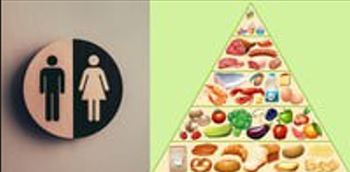Gender difference in nutritional knowledge, dietary pattern and nutritional status of undergraduates in Ado-Ekiti, Southwest Nigeria
Abstract
Background
Poor nutritional knowledge at an early stage of life suggests developing poor dietary habits that later lead to obesity and attendant complications of non-communicable diseases.
Objective
This study examined gender differences in nutritional knowledge, dietary pattern and the prevalence of overweight/obesity among students of a private tertiary institution in Ado-Ekiti, Ekiti State, Nigeria.
Methods
A total of 214 students were recruited to this study from the six colleges of the university. A semi-structured questionnaire was used to collect information on personal and lifestyle characteristics, dietary patterns and physical activity. Weight and height measures were used to calculate Body Mass Index (BMI). Data were analyzed using descriptive statistics and chi square test at 5% level of significance.
Results
The mean age of the students was 19±1.89years. Monthly allowance of ≥₦50, 000.00 ($70) was received by 64%; 80% and 78% of them had fathers and mothers respectively with university degrees. Physical exercise was not done by 40%, 69% took < 3meals/day and 60% skipped breakfast; 71% and 21% had medium and high dietary diversity scores respectively. The mean BMI was 24.6±3.70; 36% had a BMI ≥25. Regarding their nutritional knowledge, 16% were high. There were no gender differences in BMI, nutritional knowledge or dietary diversity.
Conclusions
The study revealed less than ideal nutritional knowledge and dietary diversity and prevalence of overweight/obesity. Great emphasis needs to be given to nutrition education and promotion among university students.

Authors retain all copyrights. In making a submission to World Nutrition, they are certifying that all material is theirs except quotations, as indicated, and that they have obtained permission for any photos, tables, or graphics taken from other publications or websites.




